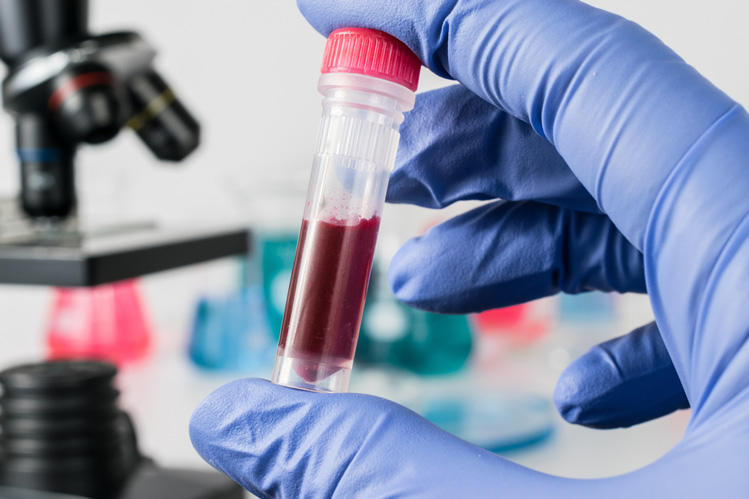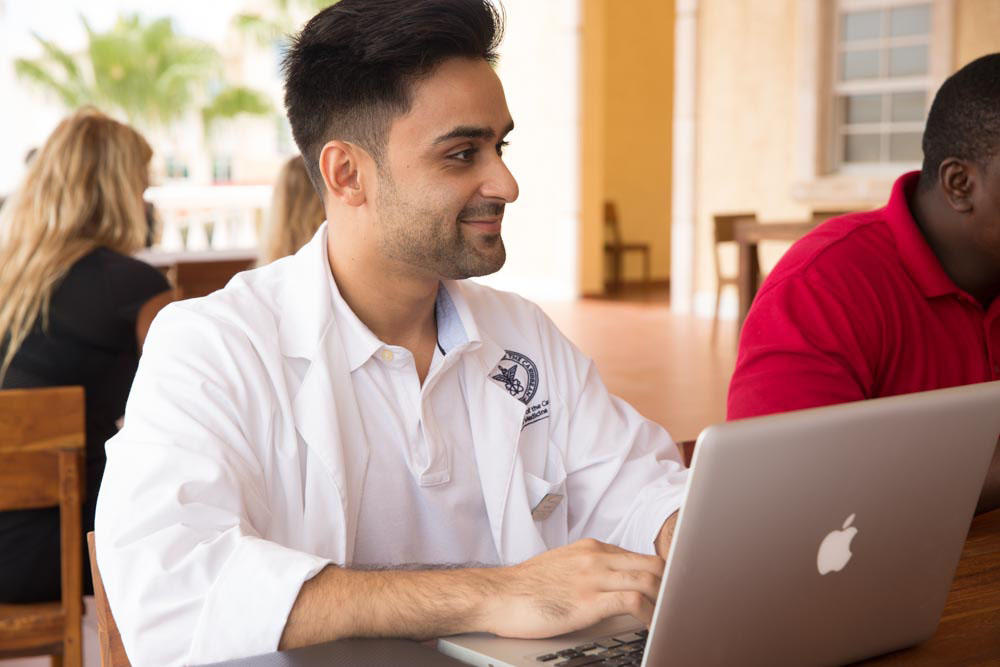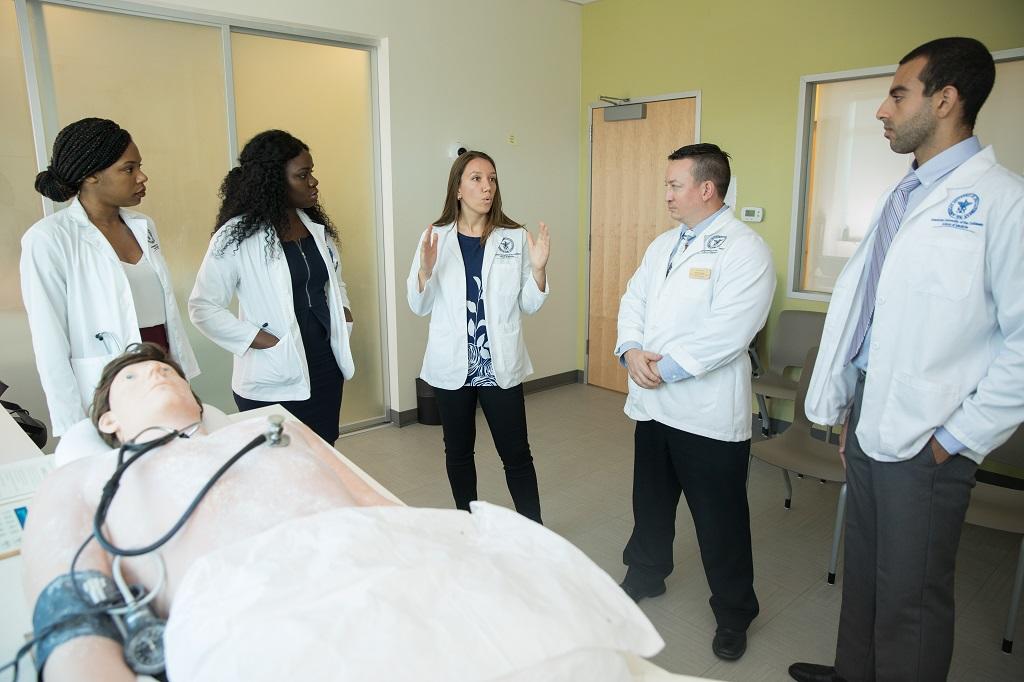Maybe you’ve seen this on your favorite TV show: a crime has been committed and the detectives are stumped, so they turn to a forensic pathologist. Often a coroner or medical examiner, the forensic pathologist examines the body and finds the clues the detectives need to solve the case. If your skills beyond the study of medicine include critical thinking and problem solving, you might consider a career as a forensic pathologist. But what is a forensic pathologist exactly? What does a forensic pathologist do? What kind of education is required to become one? Read on for the answers to these questions and more, including how a degree from American University of the Caribbean School of Medicine (AUC) can help you prepare for a career in medicine.
What Does a Forensic Pathologist Do?
Pathology is the branch of medicine that studies the cause and nature of disease, and forensics is the application of scientific knowledge to legal problems. Pathologists learn about disease by studying tissue samples and bodily fluids. But what is a forensic pathologist specifically? Forensic pathology is a subspecialty of pathology that examines cases of sudden, suspicious, or violent death. Forensic pathologists study the dead to determine why and how they died. They may be called to present their findings in court.
Prior to conducting a physical examination, a forensic pathologist will consult the medical history of the deceased person. Forensic pathologists perform procedures called autopsies to learn more about the person who has died. During an autopsy, physicians study the body internally as well as externally. They may take samples of organ tissue or bodily fluids to test for the presence of disease, infection, or drugs. They may take photographs of specific injuries or x-rays of particular organs. After closely studying all this material, forensic pathologists summarize their findings. They try to determine the time of death, cause of death (specific injury or disease), manner of death (natural, accidental, suicidal, homicidal, or undetermined), and, if necessary, what kind of instrument caused the death. They may report these findings to insurance companies, families, or courts of law. Forensic pathologists may serve as expert witnesses in court trials, explaining the findings of their examination and how it shows evidence that, for example, a death that appeared to be a suicide was in fact a murder caused by blunt force trauma.
Forensic Pathologist Educational Requirements
Forensic pathologists are licensed medical doctors. The first step toward becoming a forensic pathologist is to graduate from an accredited medical school such as American University of the Caribbean School of Medicine (AUC)*. AUC is located on the Caribbean island of St. Maarten. Students at AUC take two years of medical science classes followed by two years of clinical training, just like students at United States-based medical schools. AUC’s medical sciences curriculum is completed on campus in St. Maarten, while the clinical portion of one’s training can be done at AUC’s affiliated clinical locations in the United States and the United Kingdom. Clinical training consists of rotations (also known as clerkships) in a variety of medical disciplines including internal medicine, surgery, and pediatrics. Following the core rotations, medical students choose elective clerkships in medical subspecialties that will provide them with the knowledge and skills necessary for the next step in the process: postgraduate residency.
Residencies give newly degreed doctors the opportunity to practice and hone their skills before they are licensed to practice medicine. A medical residency typically lasts three years, but some specialties require several additional years of training known as fellowships. During this postgraduate training, future forensic pathologists will study topics including toxicology, ballistics, trace evidence, forensic serology (identifying biological samples such as bodily fluids), and DNA technology.
There are several pathways by which a newly minted doctor can become a forensic pathologist. A prospective forensic pathologist could take three years in anatomic (or hospital) pathology followed by one year of forensic pathology training. Alternatively, one could enter a five-year program consisting of anatomic pathology, clinical pathology (laboratory medicine), and forensic pathology. Or, one could participate in a fellowship program consisting of two years of anatomic pathology, one year of forensic pathology, and one year of neuropathology, toxicology, or a related field. For more information on fellowships in forensic pathology, see the Forensic Pathology Fellowships page hosted by the National Association of Medical Examiners® (NAME). After completing one’s training, a forensic pathologist might join an organization such as NAME, which sets standards for forensic pathology, provides educational and leadership opportunities for its members, and promotes research in the forensic sciences.
AUC’s Office of Career Advisement can help guide students through the process of choosing which residency programs meet their interests and then assisting students with applying for the National Resident Matching Program® (NRMP®). This matching system helps pair medical students with residency programs in the United States. In 2020-2021, 92 percent of AUC graduates matched with a medical residency before receiving their Doctor of Medicine (MD) degrees—a match percentage on par with the overall match rate (92.8 percent) for medical schools in the United States. In recent years, AUC MD’s have matched with such pathology residency programs as the Cleveland Clinic in Ohio and New York’s NYU Long Island School of Medicine, Stony Brook Renaissance School of Medicine, and University of Rochester School of Medicine.
Now you know what a forensic pathologist is, what they do, and what education is required to become one. If a career in forensic pathology intrigues you, look into the AUC MD program and, when you’re ready, apply for admission to AUC and begin your medical journey.
Related resources:
- What Does A Pathologist Do?
- American University of the Caribbean School of Medicine
- AUC Office of Career Advisement
*American University of the Caribbean School of Medicine is accredited by the Accreditation Commission on Colleges of Medicine (ACCM, www.accredmed.org), which is the accreditor used by the country of St. Maarten.





